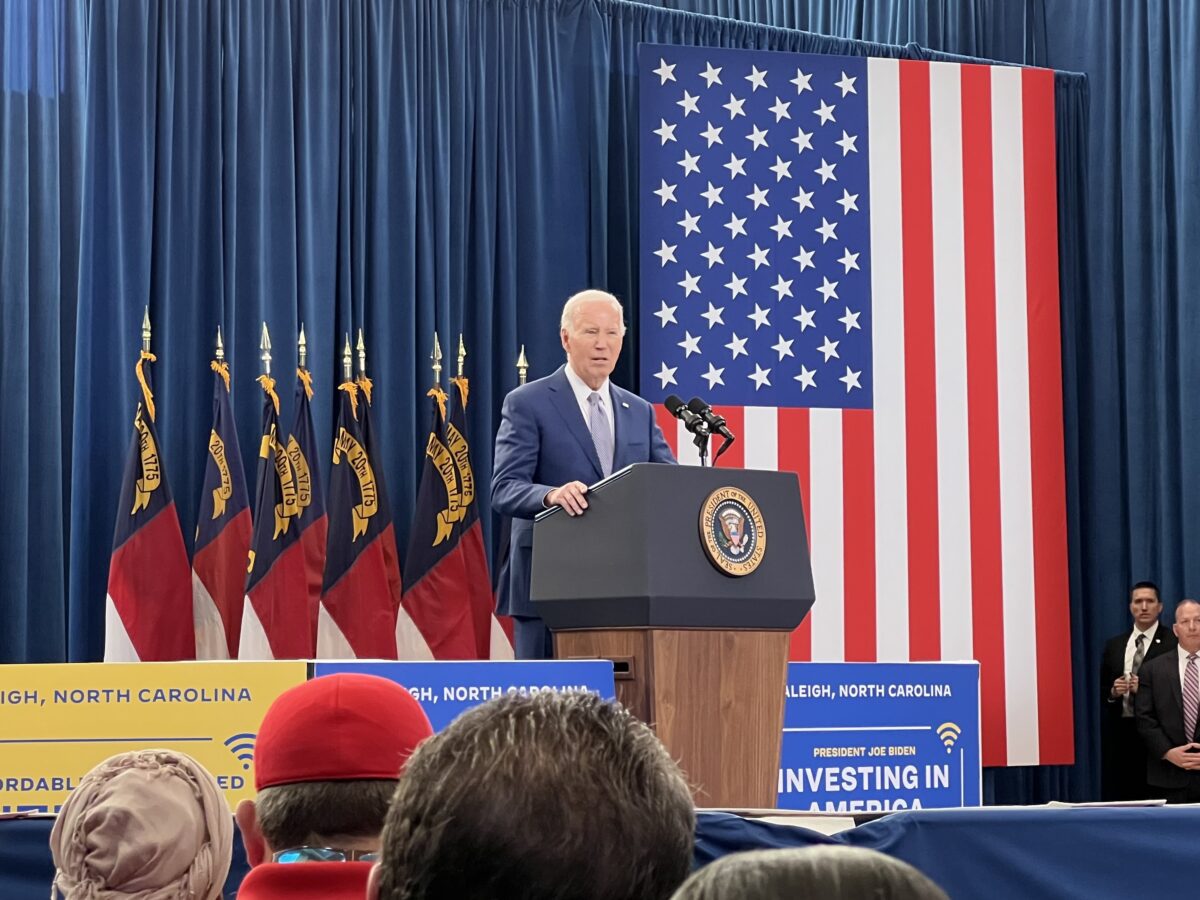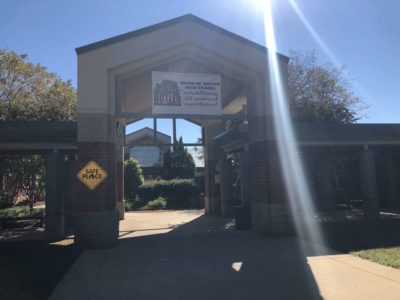
|
|
President Joe Biden announced an $82 million investment to expand “affordable, high-speed internet” to 16,000 homes and businesses across North Carolina on Thursday in Raleigh.
Biden likened the administration’s work on expanding broadband access to President Franklin Delano Roosevelt’s determination to spread electricity across the United States during the Great Depression.
“I made the same determination about affordable, high-speed internet,” declared Biden. “It’s just as essential today as electricity was a century ago.”
Biden painted an image of kids and their parents sitting in the parking lot of McDonald’s, attempting to access the restaurant’s internet to complete their homework during the pandemic. He also noted that the continued expansion of high-speed internet would assist seniors in accessing telemedicine, enable people of faith to attend church services from home, and empower small businesses to reach customers globally.
Gov. Roy Cooper kicked off the event. He proclaimed that part of his vision was to create a North Carolina that would be “more educated” with “more job training” by the end of his tenure. He emphasized the expansion of internet access as a crucial strategy to achieve that goal: “North Carolina has become a leader in the quest to connect every single family and every single business to the internet.”
Echoing Cooper, Biden stated that the administration’s goal is to ensure that every North Carolinian has “access to high-speed and affordable internet” by the end of the decade.
Improving Student Achievement Agenda for 2024
The Biden-Harris administration this week also released its “Improving Student Achievement Agenda for 2024,” which is focused on strategies that will accelerate academic performance for every child in school.
“There is nothing more important to our future than ensuring children are equipped to compete in the 21st century,” says the fact sheet.
The administration is urging states, districts, and schools to adopt three evidence-based strategies to improve student learning by increasing effective time on task, including (1) increasing student attendance; (2) providing high-dosage tutoring; and (3) increasing summer learning and extended or afterschool learning time.
The White House fact sheet says, it will use all of its tools — including accountability, reporting, grants, and technical assistance — to drive adoption of the strategies, and announced commitments to the agenda from businesses, philanthropies, and organizations.
Increasing attendance
Following the school closures that began in 2020, chronic absenteeism emerged as a serious challenge. Across the country, the rate of chronic absenteeism reached about 31% in 2021-22 because of COVID-19.
“We cannot and will not accept that as a new normal,” says the fact sheet.
Low-cost interventions — including sending texts to parents — and targeted parent and family engagement — including home visits and the adoption of early warning intervention systems — can significantly increase student attendance, says the fact sheet.
Providing high-dosage tutoring
High-dosage tutoring programs, the fact sheet says, can significantly accelerate student learning.
Tutoring programs should:
- Provide at least three 30-minute sessions per week.
- Occur in small groups (e.g., 1-4 students).
- Occur during the school day, which helps support consistent participation;
- Use well-trained tutors (e.g., paraprofessionals, teaching candidates, retired teachers, AmeriCorps members, teachers, and others).
- Align with an evidence-based, structured curriculum.
The fact sheet praises Guilford County Schools for their commitment and investment in tutoring.
Increasing summer learning and extended/after-school learning time
The fact sheet notes studies that researched the impact of summer learning as well as extended or after-school learning opportunities, finding “the use of data on student participation and program quality helps these programs succeed, and their success enables teachers to deliver instruction more effectively during the regular school day.”
Commitments to the agenda
In a separate release, the White House announced that the following businesses, philanthropies, and organizations have committed to support the agenda:
- Afterschool Alliance
- Attendance Works
- AT&T
- Boys & Girls Clubs of America
- Charles Stewart Mott Foundation
- National PTA
- National Summer Learning Association
- Overdeck Family Foundation
- Parent Teacher Home Visits
- Wallace Foundation
- YMCA
- Zearn
You can read more about their commitments here.
Recommended reading





